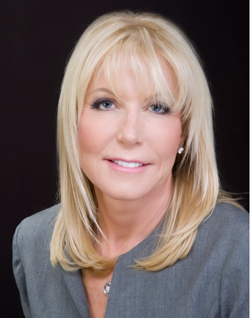
Dr. Erika Schwartz, a national expert on bioidentical hormone therapy, wellness and disease prevention, is an advocate of change when it comes to health care.
“Our whole health care system is based on disease identification and treatment,” she said in a recent interview. “Hopefully more money will be spent on prevention.”
Schwartz said too many people are reacting to a diagnosis rather than working to prevent one.
While acknowledging the importance of tests such as pap smears, mammograms and colonoscopies, Schwartz said they are not preventative.
“All of those were really (developed) just to diagnose disease, to find them early.”
Schwartz, a onetime director of emergency medicine at Westchester Medical Center, said when she went into private practice, she recognized the need for a change in focus.
“What I do is really prevention and wellness,” she said of the care and education she offers through a Manhattan office, lectures and teaching and her published works.
A new edition of her definitive 2002 book on hormones will kick off a series of books, with “A Healthcare Manifesto: The Hormone Solution Update” due out soon.
In addition, Schwartz said The Bioidentical Hormone Initiative, a group of physicians dedicated to the treatment of age-related endocrine dysfunction, is another way she is hoping to make an impact. Affiliated with SUNY Downstate College of Medicine, the initiative works to help educate the next generation of doctors.
“We provide them with continuing education credits,” she said.
Sometimes, she said, the search for knowledge and commitment to help somehow get lost in the technical ”“ and the ego.
“I find that by the time they”™re third year (students), they”™ve forgotten what they”™re there for.”
Schwartz said today”™s schooling is clinically sound, but she feels it should go further.
“The medical education is at fault,” she said, but adds that doesn”™t surprise her since it”™s been that way for centuries. “The focus has stayed on sickness and the treatment of sickness.”
She continued, “Even if you do see a doctor, most of us don”™t really listen to what the doctor has to say.”
Since people are “mostly healthy,” she noted they often only consult a doctor when things are not right.
Often, then, the doctor doesn”™t know them well and scrambles for a quick fix. They might rely on electronic records to skim your history, spend a short amount of time with you, make a quick evaluation and send you on your way.
“Why do we so sheepishly accept that? And we take that from everybody.”
Schwartz says it was nearly 20 years ago when she made a change in her own practice, realizing the norm just wasn”™t working.
“I was kind of wasting my patients”™ time and money,” she said. Time between appointments, she said, was basically spent “waiting for them to get sick.”
Instead, now she sees the time as an opportunity for maintaining and improving health through diet and exercise to other lifestyle changes, including supplements and hormones.
All are part of the same goal: “The outcome of taking them correctly and balancing them is really prevention.”
Schwartz never seems to tire of discussing the doctor-patient relationship.
It might be part of her commencement speech this year at SUNY Downstate, where she will become president of the board of managers in May.
And it was also the topic of a recent lecture in Venice.
Schwartz said what she has cultivated in her patients is an awareness she hopes becomes commonplace, a recognition that “the responsibility for keeping ourselves healthy belongs to us.”
And the power of this shift in perspective should not be underestimated.
“It”™s not teaching people to stay forever young, but teaching them to stay healthy.”
For more on Dr. Erika Schwartz, visit drerika.com.


















